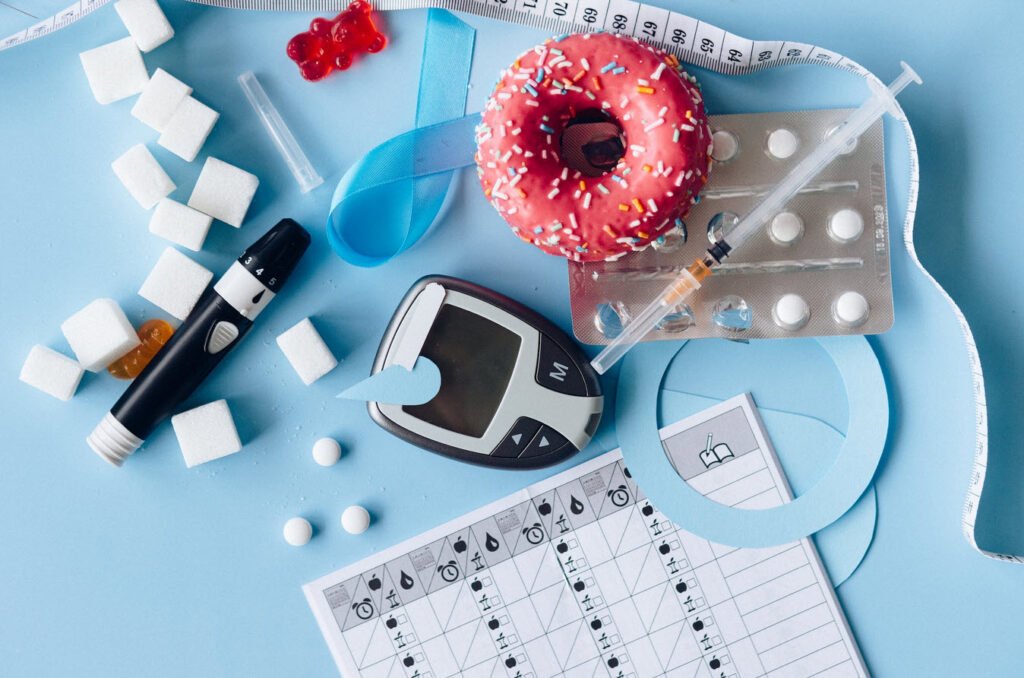Diabetes is a metabolic disorder that disrupts the body’s ability to convert glucose, the primary source of energy, into usable fuel. Glucose, derived from the digestion of carbohydrates, plays a crucial role in providing energy for various bodily functions.
In this article, we explore the two main types of diabetes, their causes, and the common symptoms that may indicate the presence of this condition.
Types of Diabetes:
1. Type-1 Diabetes
Type-1 diabetes, often diagnosed in children and young adults, is characterized by the immune system mistakenly attacking and destroying insulin-producing cells in the pancreas.
Insulin is essential for regulating blood sugar levels. This type of diabetes is primarily attributed to genetic factors, although it can manifest at any age. Individuals with Type-1 diabetes require insulin injections to manage their blood sugar levels effectively.
2. Type-2 Diabetes
Type-2 diabetes is more prevalent, accounting for 90-95% of all diabetes cases. It typically affects adults, although its incidence in younger populations is rising.
The primary causes of Type-2 diabetes are physical inactivity and obesity. In this type, the body either does not produce enough insulin or becomes resistant to its effects. Lifestyle modifications, including diet, exercise, and medication, are often employed to manage Type-2 diabetes.
Symptoms of Diabetes:
- Blurred Vision – Diabetes can affect the eyes, leading to changes in vision. Blurred vision is a common symptom resulting from fluctuations in blood sugar levels.
- Unusual Thirst – Excessive thirst, known as polydipsia, is a classic symptom of diabetes. It occurs due to the body’s attempt to eliminate excess glucose through increased urine production.
- Slow Healing Cuts – Impaired blood circulation and reduced immune function in individuals with diabetes can result in slow healing of wounds and cuts.
- Erectile Dysfunction – Diabetes can affect blood vessels and nerves, leading to complications such as erectile dysfunction in men.
- Unexplained Tiredness – Chronic fatigue is a common symptom of diabetes, often attributed to the body’s inability to effectively utilize glucose for energy.
- Frequent Urination – Increased urine production, or polyuria, is a consequence of the kidneys working overtime to eliminate excess glucose from the bloodstream.
- Rapid Weight Loss – Unintentional weight loss may occur in individuals with diabetes, particularly in Type-1 diabetes, as the body breaks down muscle and fat for energy.
- Numbness or Tingling in Hands or Feet – Neuropathy, a common complication of diabetes, can manifest as numbness or tingling in the extremities.
Conclusion
Diabetes is a chronic condition that requires careful management to prevent complications and maintain overall health. Understanding the types, causes, and symptoms of diabetes is crucial for early detection and intervention.
Regular monitoring of blood sugar levels, adopting a healthy lifestyle, and following medical advice are essential components of diabetes management.
By raising awareness about this prevalent condition, we empower individuals to make informed choices and take proactive steps towards better health and well-being.




Pingback: How Much Exercise Do You Really Need? Read Here - Health Hyme